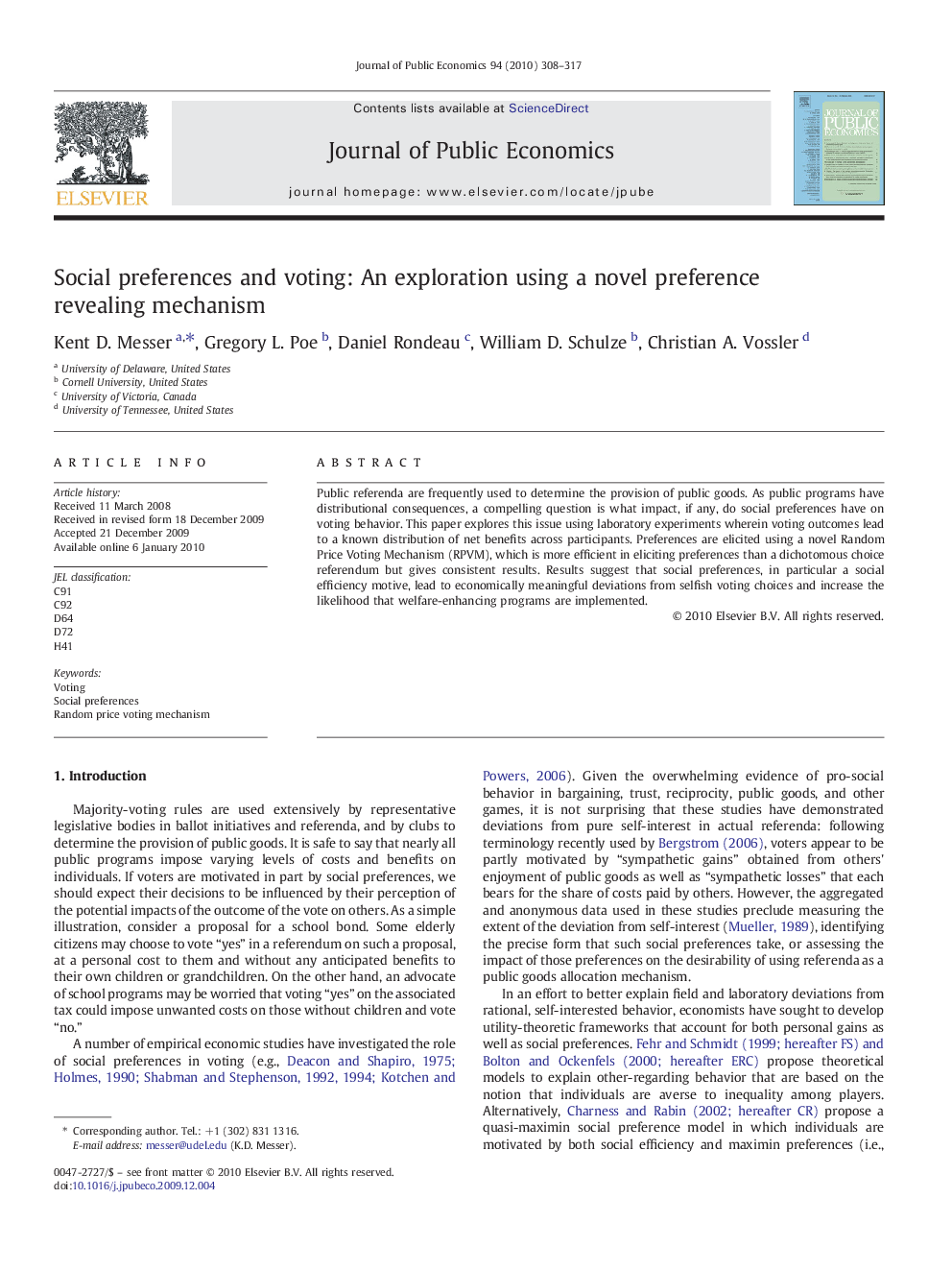| Article ID | Journal | Published Year | Pages | File Type |
|---|---|---|---|---|
| 969852 | Journal of Public Economics | 2010 | 10 Pages |
Public referenda are frequently used to determine the provision of public goods. As public programs have distributional consequences, a compelling question is what impact, if any, do social preferences have on voting behavior. This paper explores this issue using laboratory experiments wherein voting outcomes lead to a known distribution of net benefits across participants. Preferences are elicited using a novel Random Price Voting Mechanism (RPVM), which is more efficient in eliciting preferences than a dichotomous choice referendum but gives consistent results. Results suggest that social preferences, in particular a social efficiency motive, lead to economically meaningful deviations from selfish voting choices and increase the likelihood that welfare-enhancing programs are implemented.
